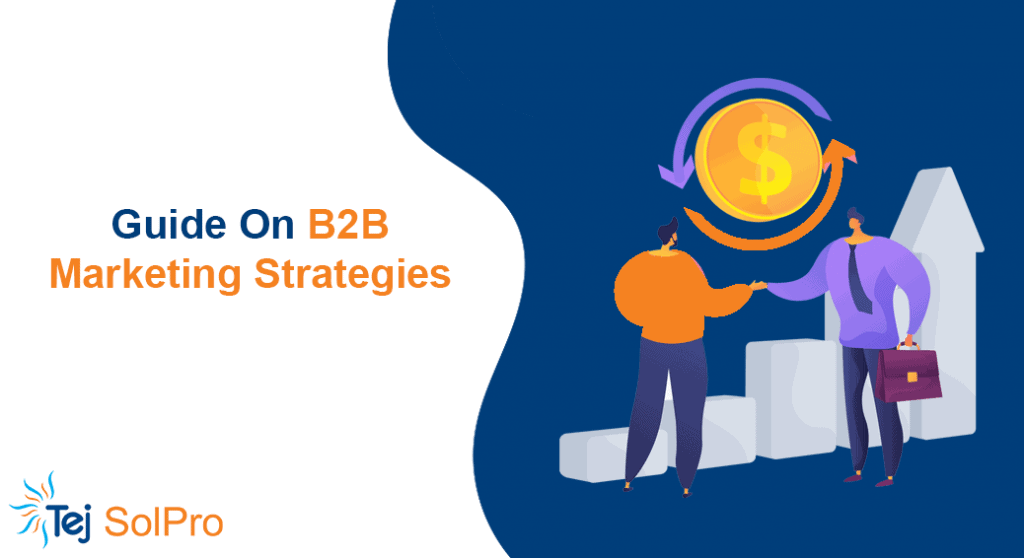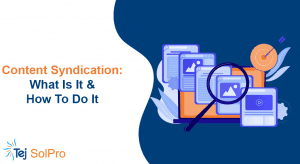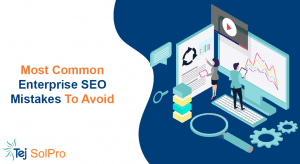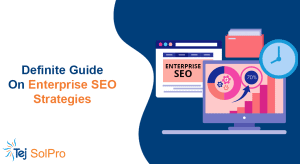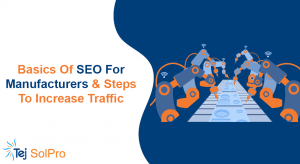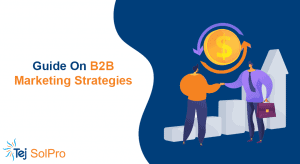In the dynamic 2025 B2B landscape, outdated marketing playbooks are insufficient. To achieve sustainable growth and connect with increasingly discerning business buyers, a robust framework of targeted B2B marketing strategies is not just advantageous, it’s imperative.
This guide outlines critical B2B marketing strategies designed to elevate your brand, engage decision-makers, and drive measurable results, effectively integrating vital aspects of digital marketing for B2B success.
The B2B purchasing journey is characterized by its length and involvement of multiple stakeholders. Your marketing must therefore be strategic, value-centric, and predicated on a profound understanding of your ideal customer. Let’s explore the core B2B marketing strategies pivotal for current business environments.
Contents
- 1 Key Takeaways for Essential B2B Marketing Strategies
- 2 How Can Account-Based Marketing (ABM) Sharpen Your B2B Focus?
- 3 Why is Content Marketing Crucial for B2B Thought Leadership and Lead Generation?
- 4 How Does Next-Generation SEO Enhance B2B Discoverability and User Engagement?
- 5 What Makes LinkedIn an Essential Platform for B2B Engagement and Lead Cultivation?
- 6 How Can Intelligent Email Marketing Drive B2B Nurturing and Conversions?
- 7 How Does Strategic Digital Advertising Amplify B2B Reach and Generate Qualified Leads?
- 8 Why is Data Analysis Fundamental to Refining and Optimizing B2B Marketing Strategies?
- 9 Converting Strategy into Leads: Key Considerations
Key Takeaways for Essential B2B Marketing Strategies
Before we dive deep, here are the critical strategies for B2B success in 2025:
- Precision Targeting with ABM: Focus resources on high-value accounts through hyper-personalized Account-Based Marketing.
- Value-Driven Content Ecosystems: Establish thought leadership and guide prospects by creating comprehensive, authoritative content.
- Next-Generation SEO: Enhance visibility by optimizing for semantic search, demonstrating topical authority, and ensuring superior user experience.
- Strategic LinkedIn Utilization: Leverage LinkedIn for authentic professional engagement, community building, and targeted outreach.
- Intelligent Automation & Personalization: Employ sophisticated email marketing and digital advertising driven by data and behavioral insights for maximum impact.
How Can Account-Based Marketing (ABM) Sharpen Your B2B Focus?
Account-Based Marketing sharpens your B2B focus by concentrating marketing and sales efforts on a select group of high-value target accounts, employing hyper-personalized campaigns to drive engagement and conversion within these specific organizations.
ABM has evolved beyond a buzzword to become a foundational element of high-performing B2B marketing strategies. It demands a shift from broad outreach to a concentrated, bespoke approach.
Why is ABM indispensable now? B2B decision-makers are inundated with generic messaging. ABM ensures your communications are relevant, address specific pain points of target accounts, and demonstrate a clear understanding of their unique business context.
- Effective ABM Implementation:
- Develop Dynamic Ideal Customer Profiles (ICPs): Utilize data analytics to define and continuously refine your ICPs, identifying accounts with the highest revenue potential.
- Personalize at Multiple Touchpoints: Craft tailored content, messaging, and outreach for various stakeholders within each target account.
- Align Sales and Marketing Efforts: Foster seamless collaboration between sales and marketing teams, ensuring unified objectives, shared intelligence, and coordinated execution. This synergy is crucial for all impactful B2B marketing strategies.
- Utilize ABM Technology: Implement ABM platforms to streamline account selection, campaign management, and performance measurement.
- Targeted Digital Advertising: Employ platforms like LinkedIn to deliver personalized ad content directly to key individuals within your identified accounts.
Why is Content Marketing Crucial for B2B Thought Leadership and Lead Generation?
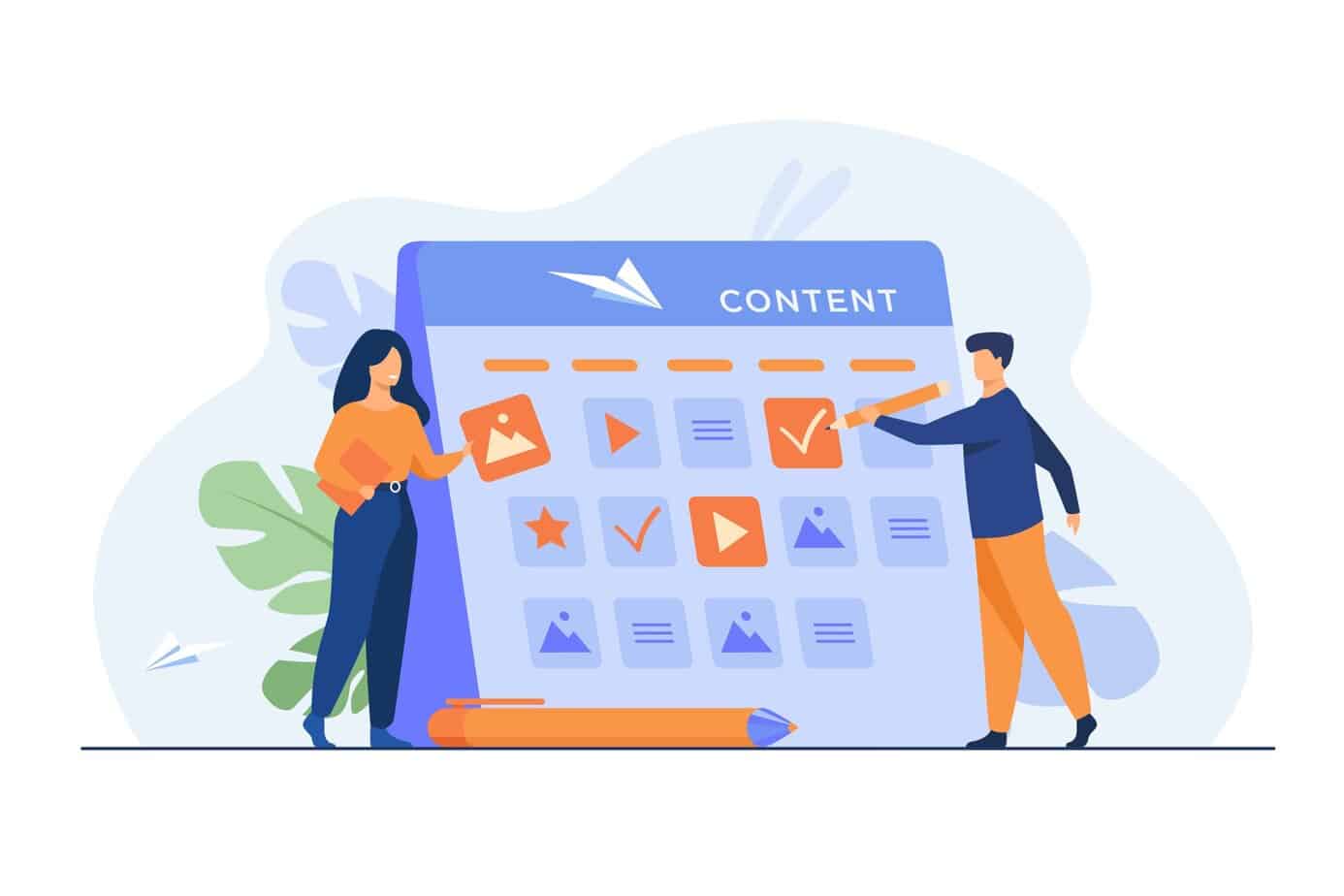
Content marketing is crucial because it establishes your brand as a credible authority by comprehensively addressing your audience’s informational needs at every stage of their journey, thereby building trust and generating qualified leads.
Content marketing for B2B remains central to effective digital marketing strategy. In 2025, the emphasis is on creating interconnected “content ecosystems” that demonstrate deep expertise rather than isolated pieces.
- The current imperative for content ecosystems: B2B buyers conduct extensive online research. A well-structured content ecosystem provides them with a reliable source of in-depth information, positioning your brand as the go-to expert.
- Building a High-Impact Content Ecosystem:
- Pillar Pages and Topic Clusters: Develop comprehensive pillar pages for core topics central to your expertise. Support these with detailed cluster content (articles, case studies, webinars) addressing specific sub-topics, all strategically interlinked. This structure enhances SEO and signals topical authority.
- Address User Intent: Create content that directly answers the questions and addresses the challenges of your target audience at each phase of their decision-making process.
- Diversify Content Formats: Incorporate whitepapers, in-depth case studies, instructional webinars, expert interview podcasts, and interactive assessment tools to cater to varied learning preferences and increase engagement.
- Optimize for Search Visibility: Ensure all content is optimized with relevant keywords (including “B2B marketing strategies,” “digital marketing for B2B,” and long-tail variations) to improve organic search rankings.
- Strategic Content Promotion: Actively promote content across pertinent channels, including LinkedIn, industry forums, and segmented email newsletters.
- Lead Generation through Gated Content: Offer high-value assets (e.g., exclusive research, comprehensive guides) behind a form to capture lead information.
How Does Next-Generation SEO Enhance B2B Discoverability and User Engagement?
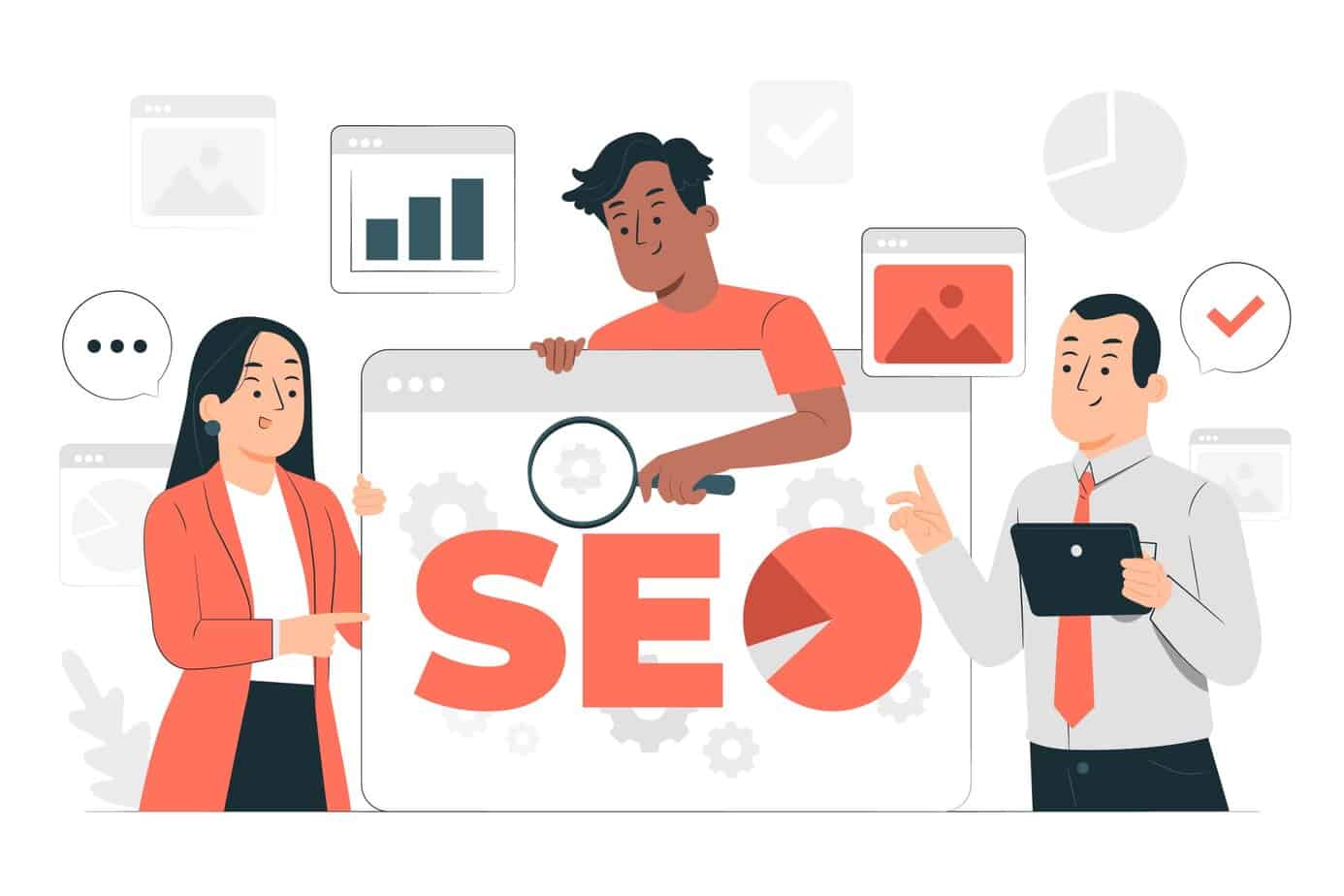
Next-generation SEO strategy enhances B2B discoverability by optimizing for semantic search and topical authority, while focusing on superior site speed and user experience, making it easier for ideal clients to find and engage with your solutions.
A technically sound and strategically optimized website is fundamental. SEO for B2B in 2025 prioritizes understanding user intent, demonstrating expertise, and providing an excellent online experience. This is a non-negotiable part of modern B2B marketing strategies.
- The urgency for advanced SEO practices: Search engines increasingly prioritize content that comprehensively answers user queries and comes from authoritative sources. A failure to adapt means significantly reduced visibility.
- Key Elements of Next-Gen B2B SEO:
- Focus on Semantic Search & Conversational Queries: Optimize content to answer the natural language questions your prospects are asking.
- Demonstrate E-E-A-T (Experience, Expertise, Authoritativeness, Trustworthiness): Showcase your industry experience, highlight expert contributors, build high-quality backlinks, and maintain a secure, professional website. (For instance, linking to original data sources or authoritative Google guidelines on topics like mobile-first indexing).
- Implement Structured Data (Schema Markup): Use schema to help search engines better understand the context of your content, potentially leading to enhanced search result appearances.
- Prioritize Core Web Vitals & Mobile Experience: Ensure your website loads quickly, is responsive across all devices, and offers a seamless mobile user experience. Google’s mobile-first indexing makes this critical.
- Build Topical Authority: Develop comprehensive content clusters around your core areas of expertise to signal to search engines that you are an authority on those subjects.
What Makes LinkedIn an Essential Platform for B2B Engagement and Lead Cultivation?
LinkedIn is essential as it provides unparalleled access to B2B professionals and decision-makers, enabling targeted outreach, authentic brand building, and the cultivation of valuable leads within a professional context.
LinkedIn is an indispensable channel for executing modern B2B marketing strategies, offering a direct avenue for networking, thought leadership, and customer acquisition.
- LinkedIn’s heightened relevance today: It’s the primary social platform where B2B buyers actively seek industry insights, vendor information, and professional connections.
- Maximizing LinkedIn for B2B Success:
- Optimize Your Company Presence: Ensure your LinkedIn Company Page is complete, professionally presented, and clearly articulates your value proposition.
- Encourage Employee Advocacy: Empower your team to share company content and engage in relevant discussions, extending your brand’s reach.
- Publish High-Value, Native Content: Share insightful articles, expert commentary, industry analyses, and helpful videos directly on the platform.
- Active Participation in Relevant Groups: Engage authentically in industry-specific groups by offering valuable contributions, not just self-promotion.
- Strategic LinkedIn Advertising: Utilize LinkedIn’s sophisticated advertising options (e.g., Sponsored Content, Sponsored Messaging, Lead Gen Forms) to target specific job titles, industries, and company profiles as part of your digital marketing for B2B initiatives.
How Can Intelligent Email Marketing Drive B2B Nurturing and Conversions?
Intelligent email marketing drives B2B nurturing and conversions by leveraging segmentation, personalization, and automation to deliver timely, relevant, and valuable communications that guide prospects through the sales funnel.
Despite the proliferation of other channels, email remains a highly effective instrument for direct B2B communication, lead nurturing, and relationship building within your overall B2B marketing strategies.
- The enduring power of targeted email: Email allows for personalized, direct engagement with leads and customers, facilitating stronger relationship development and improved conversion rates when executed strategically.
- Components of an Intelligent Email Strategy:
- Build a Quality, Opt-In Email List: Offer compelling lead magnets (e.g., exclusive reports, webinar access) to encourage legitimate sign-ups.
- Implement Granular Segmentation: Categorize your audience based on demographics, firmographics, online behavior, engagement history, and their stage in the buying cycle.
- Leverage Personalization and Automation: Utilize marketing automation platforms to deliver personalized email sequences triggered by specific user actions or milestones.
- Focus on Delivering Tangible Value: Ensure each email provides information or resources that are genuinely useful to the recipient.
- Consistent Performance Tracking: Monitor key metrics such as open rates, click-through rates, and conversion rates to continuously refine and optimize campaigns.
How Does Strategic Digital Advertising Amplify B2B Reach and Generate Qualified Leads?
Strategic digital advertising amplifies B2B reach by providing immediate visibility to highly targeted audiences across various online channels, enabling precise messaging that effectively generates qualified leads and accelerates the sales pipeline.
While organic efforts build a long-term foundation, well-executed digital advertising provides the necessary thrust to accelerate your B2B marketing strategies and achieve immediate impact. This is a cornerstone of effective digital marketing for B2B.
- Why paid advertising is critical for B2B growth: Digital ads offer speed, scalability, and precise targeting capabilities essential for reaching niche B2B audiences and ensuring your solutions are seen by relevant decision-makers.
- Key Digital Advertising Channels & Tactics for B2B:
- Search Engine Marketing (SEM):
- Google Ads: Target high-intent keywords that B2B buyers use when searching for solutions. Focus on specific, long-tail phrases.
- Compelling Ad Copy & Relevant Landing Pages: Craft clear, benefit-oriented ad copy and ensure ads direct users to optimized, congruent landing pages.
- Social Media Advertising (Primarily LinkedIn):
- LinkedIn Ads: As previously emphasized, leverage Sponsored Content, Lead Gen Forms, and other formats to target professionals by specific criteria like industry, job function, seniority, and company size.
- Display Advertising & Strategic Retargeting:
- Retargeting: Crucially important. Re-engage website visitors who haven’t converted with tailored ads reminding them of your value proposition.
- Best Practices for B2B Digital Advertising:
- Define Clear Objectives & KPIs: Establish specific goals for each campaign (e.g., MQLs generated, demo requests).
- Thorough Audience Research: Deeply understand your ICP to inform targeting parameters.
- A/B Test Rigorously: Continuously test ad creatives, targeting options, and landing page designs.
- Track ROI Diligently: Implement robust conversion tracking to measure the effectiveness and financial return of your ad spend.
- Search Engine Marketing (SEM):
Why is Data Analysis Fundamental to Refining and Optimizing B2B Marketing Strategies?
Data analysis is fundamental because it provides objective insights into campaign performance, audience behavior, and market trends, enabling B2B marketers to make informed decisions, iteratively refine their strategies, and maximize return on investment.
The most effective B2B marketing strategies are dynamic and data-informed. Consistent analysis of performance metrics is key to understanding efficacy and identifying areas for improvement.
- The necessity of a data-driven approach: The B2B marketing environment is in constant flux. Data equips you with the insights needed to adapt, optimize resource allocation, and maintain a competitive edge.
- Implementing a Data-Driven Optimization Cycle:
- Establish Key Performance Indicators (KPIs): Define specific, measurable, achievable, relevant, and time-bound KPIs for each marketing initiative.
- Utilize Integrated Analytics Tools: Employ tools like Google Analytics, CRM dashboards, and marketing automation platform reports to gather and consolidate data.
- Conduct Regular Performance Reviews: Schedule periodic reviews of marketing data with relevant stakeholders to identify trends, successes, and challenges.
- Iterate Based on Insights: Be agile and willing to adjust tactics, messaging, and channel focus based on what the data reveals.
Converting Strategy into Leads: Key Considerations
The primary objective of your B2B marketing strategies is the generation of high-quality leads that progress through the sales funnel. Ensure your initiatives are structured for conversion:
- Prominent and Persuasive Calls to Action (CTAs): Every marketing asset should feature clear, compelling CTAs that direct users towards the desired next step (e.g., “Download Your Industry Report,” “Schedule a Consultation,” “Explore Solution Features”).
- Optimized, High-Conversion Landing Pages: Design dedicated landing pages with focused messaging, minimal distractions, and streamlined forms to facilitate easy conversion.
- Valuable Lead Magnets: Offer substantial, problem-solving content—such as in-depth eBooks, original research, interactive tools, or exclusive webinar recordings—in exchange for contact details.
- Systematic Lead Nurturing: Implement automated email workflows to cultivate relationships with leads over time, providing them with relevant information until they are sales-ready.
- Seamless Sales and Marketing Alignment: Establish clear processes and maintain open communication between sales and marketing for effective lead qualification, handoff, and follow-up.
By implementing these integrated and adaptable B2B marketing strategies, your organization can effectively navigate the complexities of the modern B2B environment, build meaningful client relationships, and achieve sustained business growth.

